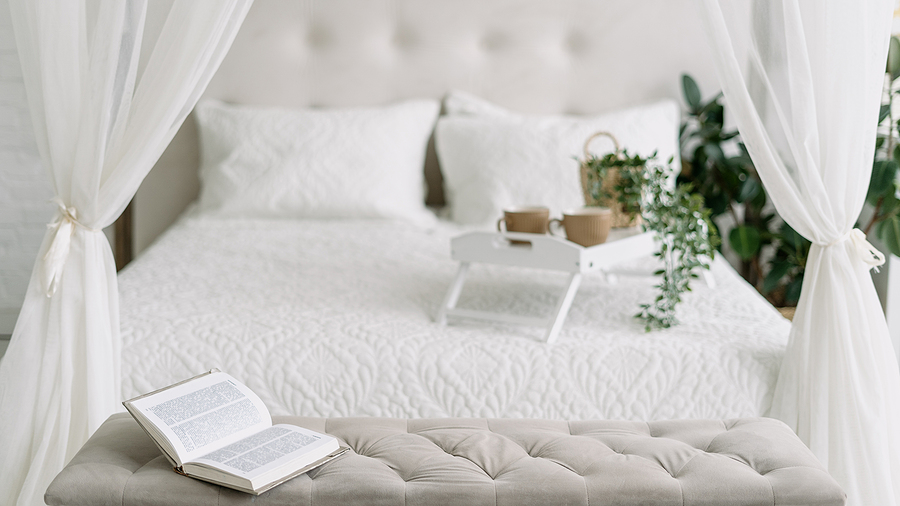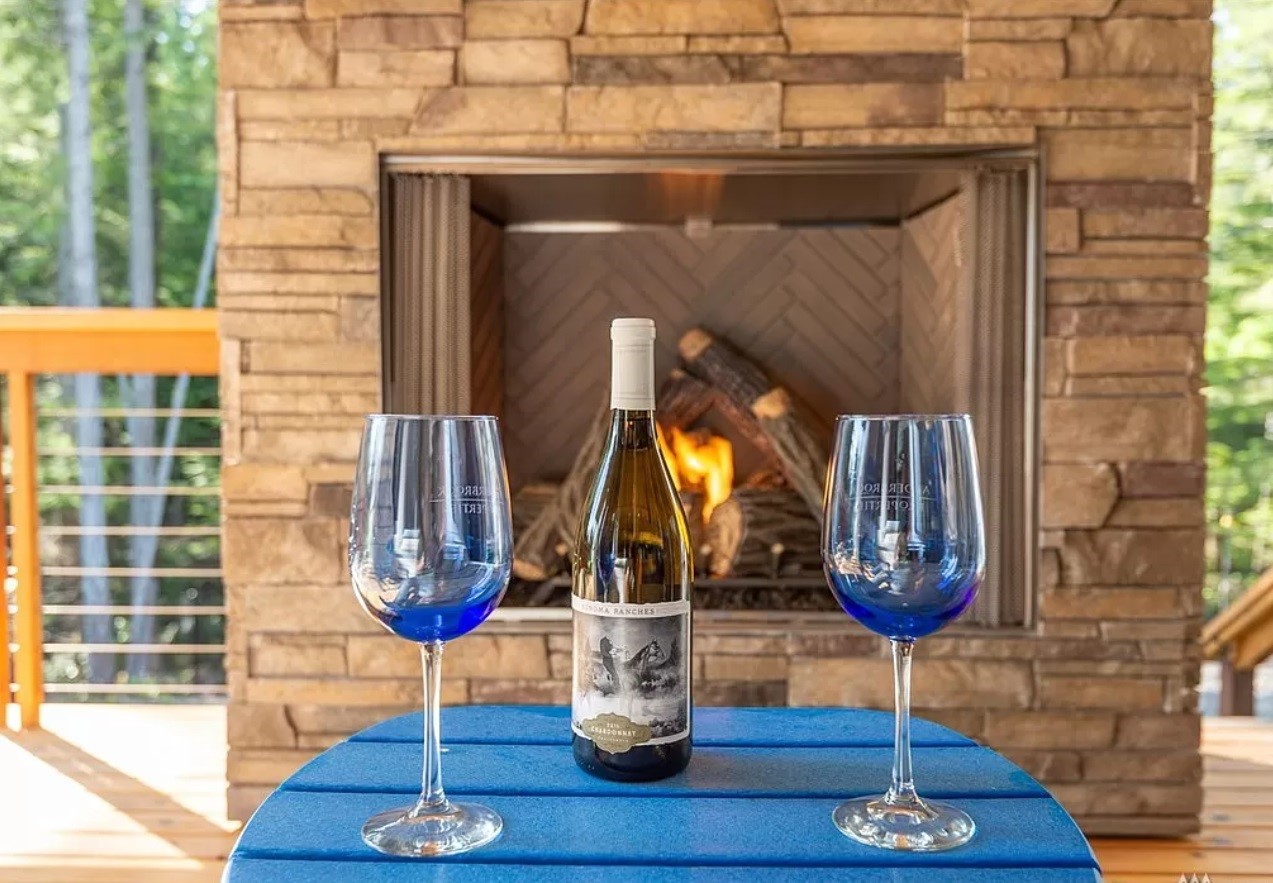 Purchasing a Second Home
Purchasing a Second Home
Have you considered buying a second home? A secondary property can be a great investment in your future. It can also help you earn additional income and provide a retreat from everyday life.
If you’ve been thinking about purchasing a second home, here are some considerations to bear in mind, plus tips for getting started.
Where To Buy A Second Home
Deciding where to purchase your next property is a major decision. Should you get a home close to your family? Or would you prefer one on a beach, in the mountains or in a city you love?
It’s important to discuss locations with your spouse and other family members who might be included in this decision. From there, spend time researching the best local neighborhoods. Partner with a local real estate agent so you find the best areas for a second home. Plus, this makes the first step of the home buying process, preapproval, much easier. Doing research ahead of time about your new location, teaming up with a real estate agent in that area and calculating your finances within the new area will show upfront initiative to your lender as you navigate the mortgage process for your second property.
Uses For A Second Home
Some buyers already have a clear vision for their second home before making their purchase, but it’s OK if you’re not sure. Consider your options – it may even change your location. It’s important to note that with Rocket Mortgage®, the property may qualify as a second home if it’s rented out for no more than 180 days in a calendar year. You must also reside in the home for either 14 days or 10% of the days the property is rented, whichever is greater.
- Vacation home: If you have a large family, you vacation often, or simply want your own spot to call home when you’re away, a vacation property might be what you’re looking for. You should choose a location you love visiting and exploring. For many, jumbo loans or conventional loans are the best option for a vacation home mortgage. It’s important to remember this mortgage process is similar to taking out a loan on your primary home, just with slightly stricter requirements.
- Secondary residence: Does your job require a good deal of travel or time spent in another city? You might consider using your property as a secondary
- Investment property: Some homeowners will buy a second home as an investment property. Typically, this means either flipping and reselling the home, or turning it into a rental property. Investment properties have different requirements and mortgage rates for second homes. For example, many homeowners cannot use a jumbo loan to finance an investment property, as many lenders consider it an “investment” if rented out more than 14 days of a year. This is opposed to a conventional loan where you can rent your second home for up to 6 months. Federally backed loans such as FHA loans and VA loans are also out of the question. Make sure to discuss in detail with your mortgage professional to make sure your mortgage matches your goals. At Rocket Mortgage, you can get a jumbo loan on an investment property starting at a 20% down payment depending on the number of units you want.
You can use your second home for any combination of the above. You could vacation there for a designated period of time and rent it out via Airbnb and short-term leases for the rest of the year.
Can I Afford A Second Home?
Are your finances ship-shape to the point that you can afford to buy a second home? Even if you plan to collect rental income from the property, you’ll want to be sure it’s a purchase you can afford, particularly if it will remain vacant for several months a year.
Here are some financial factors to bear in mind.
Down Payment And Interest Rates
As with your primary residence, buying a second home will require a down payment and a mortgage (with interest, of course) – unless you plan to pay with cash.
In fact, a higher down payment for a second home is required. Why is that? Purchases of a second home are a higher risk for a mortgage lender because of the greater chance of default on a second home (versus a primary residence) in the event of financial hardship.
The same logic can be applied to interest rates as well. In order to hedge against potential losses in the event of a default, there is almost always a higher interest rate on a mortgage for a second home.
Debt-To-Income Ratio Requirements
You’ll have to meet debt-to-income ratio (DTI) requirements in order to qualify for a mortgage for a second home. DTI refers to the amount of debt you hold versus the amount of money you make. A quick way to calculate your DTI is to add up the monthly debts you pay and divide it by your monthly pretax salary.
Most lenders require a DTI of 43% or less to get approved for a second mortgage.
Monthly Budgeting
You may be approved for a second mortgage on paper, but you’ll want to crunch the numbers to see if an additional mortgage makes good financial sense. The best way to do this is to add up all of your monthly payments and subtract this number from your monthly post-tax salary. The remaining money is where your second mortgage payment will come from.
You might be counting on rental income to help balance out your second mortgage payment, but you’ll still want to make sure you can afford the payment on your own, in case your property doesn’t rent as quickly as you’d like.
In addition, you’ll want to consider property taxes, homeowners association fees and general upkeep costs before you make this decision.
Rental Maintenance
You’ll also want to be prepared for the cost of buying a rental property and the maintenance that comes with it. As both owner and possibly landlord, you’ll be responsible for handling all repairs and damages. This could mean paying a repair person for services, purchasing paint, doorknobs and other home improvement products or paying a lawn service to maintain the yard.
Save at least 10% of the yearly rent for upkeep and property management. If your property rents for $2,000, the yearly rent would be $24,000. Therefore, you should save $2,400 in case of emergency repairs. Keep in mind, repairs could cost more or less than this estimate, so it’s always a good idea to have more money saved.
How To Buy A Second Home
If you’ve already been through the process of buying a house, you know that there’s a lot to keep track of.
Ready to start looking for your second home? Here’s a complete list of the steps you need to take.
Step 1: Get Preapproved For A Mortgage
It’s important to start the financing process as soon as you’re ready to start looking for a home for a couple of reasons. First, starting the process early will eliminate any financial obstacles during closing, which will help you close on time with no surprises.
Second, getting preapproved early will give you a better idea of how much you can finance for your second home, which is helpful once you start shopping for houses.
Step 2: Find Your Dream Second Home
Your agent can help you find your dream second home after you’re preapproved for a mortgage. They’ll work with you to find homes that fit your criteria (number of bedrooms, square footage, location, amenities, etc.) and will show you homes that fit your budget and preferences.
Once you’ve found the home you want to buy, your agent will work with you to make an offer with the selling agent and negotiate any counteroffers. The next step begins once your offer is accepted.
Step 3: Close On Your Second Home
When the seller accepts your offer, it’s time to begin closing on the home. The closing process can take 30 – 40 days, on average, and includes several steps:
Buy homeowners insurance: You’ll need to confirm proof of your homeowners insurance at closing in order for your lender to release your funding. Shop around for local policies and be sure to review extra damage protection (flood, wind, hail, etc.) depending on your home’s location.
Buy title insurance: You’ll also work with a title company to research any outstanding liens on the property to make sure it’s clear to buy. Your title company will issue title insurance to protect your purchase.
Wait for appraisal results: Your lender will arrange for a home appraisal to ensure your home’s value is accurate. If the value is the same or higher than the listing price, you’ll move on to the next step. If it comes in lower, you’ll work with your agent to negotiate with the seller’s agent and decide if the property is still a worthwhile investment.
Schedule your home inspection: Your home inspection is separate from the appraisal and does a more thorough examination of the property. You’ll work with your agent to negotiate with the seller on pricing or repairs if issues are found. If no issues are found, you’ll move on to the next step.
Arrange a final walk-through: You fell in love with the home during your tour, but you’ll want to schedule a final walkthrough to ensure the home is move-in ready.
Close on your second home: The last part of the process is to pay closing costs, sign all of the closing paperwork and receive your keys. Your agent, closing agent or attorney will manage this process to ensure all paperwork is in order.
The Bottom Line
Buying a second home is an excellent way to expand your real estate portfolio and generate another stream of income. Before you buy your home, decide how it will be used and which location makes the most sense. Once you’ve budgeted and decided to invest in a second home, start thinking about the beginning stage of home buying, getting preapproved on a mortgage. This step is so crucial to deciding how much of your second home you can finance.







